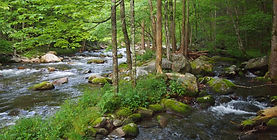The exact origin of a place on the planet is difficult to pin point. So the following is a brief accounting of projects that I have worked on since the early years of my career which led to my keen interest in and concern for the living planet.
-David Lackey, Principal. Whirlwind Creative.
1992 Birth of second child, Anna
Conservation of our resources becomes doubly important
1995 Bruce Museum Environmental Education Center Greenwich, Connecticut
Changes in the earth over time, from a global to local perspective.
1996 Seed the Earth: Monterrey, Mexico
Can expanding agricultural technologies keep up with a growing population?
1997 Environmental Overviews for the Tennessee Aquarium Imax Theater.
Images and sounds from bio-regions around the world can show what diversity really means
origins of place on the planet















1982 World’s Fair in Knoxville, Tennessee
Energy alternatives for the future.
1984 Worlds Fair in New Orleans
Exploring the theme fresh water as a source of life
1985 National Museum of Oil and Gas in Saudi Arabia
Understanding the impact of the science and technology of oil and gas exploration
1986 The Statue of Liberty Museum
The meaning of freedom and the choice to move around the world
1989 Birth of first child, Simone.
1991 Hong Kong on the Museum of Science and Industry.
Global expansion of the Chinese economy, manufacturing and trade.
1992 Caring for Earth exhibit for the United Nations.
Principals of sustainability for developed and developing nations.
2002 Mohegan Tribe
Honoring and preserving the legacy of an indigenous people
2002-2005 Lower Manhattan Development Corporation - Rebuilding of Ground Zero
Does architecture and memorials ever reverse the tragedy of terrorism?
2006 Coming Home: David Burnett's images following the disaster of Hurricane Katrina
Documenting the destruction of the region after the Storm
2007 Floodwall: An Artist's Memorial to New Orleans
Commemorating the loss of homes and lives
2008 The Great Smoky Mountains
The resillience of one of the most bio-diverse regions in the United States after 80% of the forests were clear-cut. A testiment to the to how the National Park Service is preserving our land
2009 EcoVillage in Ithaca, New York
An intentional community that offers a new model for concentrated housing within the conservation of natural habitat.
2010 Suffolk County Environmental Center on Long Island.
Design for an environmental education center.
2010-2011 National Park Service
Padre Island National Seashore, Voyageurs National Park, Canyonlands National Park
Realizing how important it is to preserve large areas of the natural world for all to enjoy
2008-2012 Duke Farms: Center for Land Stewardship
How a private estate becomes a 900-acre park that's free and open to the public to educate visitors on sustainable landscapes, regenerative habitats, and understanding of the relationship between natural and human built systems.
2012 place on the planet is conceived
An idea is born to develop a comprehensive environmental educational initiative that will shift our focus from an anthroprocentric to biocentric
2013 Trek across the United States
Documenting the vast landscapes of the United States from ocean to ocean with panoramic photographer LIncoln Castricone offers a new understanding where my place on the planet is
2013 Joined the Living Future Institute.
Finding inspiration from thinkers, designers and practitioners who share experience in regenerative design and social just practices
2014 Buckminister Fuller Challenge
Creating a video about The Challenge opens our minds to the possibilities of real change
2015 Planet Earth WasteLab for Greenville, South Carolina
An educational initiative to train the next generation of "WasterNots" to reduce consumption in order to live ligher on the land
2015 Consulted on Interactive Earth—a company combining geospatial literacy, earth visualizations, narratives, and science education to promote systems thinking.
2016 Launched place on the planet
A collective vision of people working together to live within the carrying capacity of the earth...
"Fresh water is a rare commodity. Only 3% of the water on earth is fresh, and most of that is trapped underground or in ice. Less than one-tenth of 1% of water on earth supports terrestrial life, including humans."
"To adopt an ethic for sustainable living requires each of us to re-examine our values and alter our behavior."
